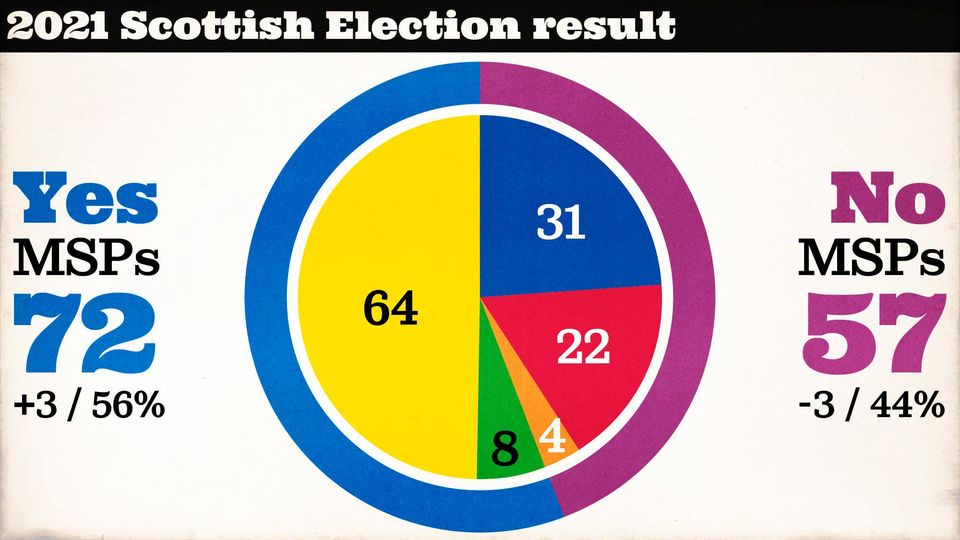 As you may be aware, there were a number of elections in the UK on Thursday, consisting of local elections in England, in which the Conservative Party did well, a national election in Wales, in which the Labour Party did well, and a national election in Scotland, in which all of the unionist parties were soundly defeated by pro-independence ones.
As you may be aware, there were a number of elections in the UK on Thursday, consisting of local elections in England, in which the Conservative Party did well, a national election in Wales, in which the Labour Party did well, and a national election in Scotland, in which all of the unionist parties were soundly defeated by pro-independence ones.
The results of the Scottish Parliament general election are essentially as follows:
Pro-independence parties advocating a referendum on Scottish independence (the Scottish National Party and the Scottish Green Party) won a total of 72 seats. Anti-independence parties opposed to a Scottish independence referendum (the Conservative Party, the Labour Party and the Liberal Democrat Party) won a total of only 57 seats. Simple arithmetic tells you that this means that the pro-independence parties now jointly have a commanding parliamentary majority of 15 seats. As both of these parties included in their election manifestos proposals to hold a referendum on Scottish independence, it follows that they have won a democratic mandate to do that.
Consequently, the Scottish Government intends to introduce legislation to allow an independence referendum to take place after the current public health emergency, probably in the spring of 2022. This legislation will clearly be passed. What then? No one knows.
When asked this morning on the BBC if Scotland is allowed to leave the United Kingdom, a UK Government minister (Michael Gove) replied that of course it is. When asked how, he said that that would be by means of a referendum, which he claimed that the people of Scotland are not clamouring for.
In Scotland facts are incontrovertible. In England they are what the Tories say they are.
Laisser un commentaire